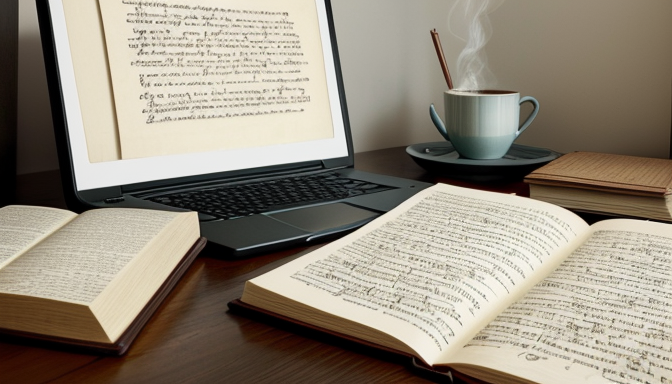This year has been nothing short of a literary rollercoaster, with controversies that have left readers and authors alike scratching their heads. From heated debates over censorship to the clash between authorial intent and reader interpretation, the literary world has been buzzing with discussions that are both enlightening and, at times, infuriating. Have you ever wondered how a single book can ignite such fierce debates? It’s like watching a match thrown into a barrel of fireworks—unexpected and explosive!
One of the most talked-about issues has been the increasing trend of censorship. In 2023, we witnessed several high-profile books being challenged or banned, raising questions about freedom of expression and the role of literature in society. For instance, the case of a popular novel that was pulled from shelves due to its controversial themes sparked outrage among readers who felt their right to access diverse narratives was being undermined. This situation has ignited a firestorm of discussion about the importance of literary freedom and the implications of censorship on creativity.
Moreover, the ongoing debate between what an author intends and how readers perceive their work has also taken center stage. In this age of social media, where opinions can spread like wildfire, misunderstandings can quickly escalate into full-blown controversies. Notable instances this year have highlighted how different interpretations of a single passage can lead to passionate discussions, making us question: should an author’s voice be the final word on their narrative, or do readers have the right to interpret it in their own way? This tug-of-war between authorial intent and reader interpretation continues to fuel debates that resonate throughout literary circles.
As we dive deeper into these controversies, it’s clear that literature is not just about words on a page; it’s a living, breathing entity that reflects our society. The conversations sparked by these events are crucial for understanding the evolving landscape of literature in 2023. So, buckle up—this literary journey is just getting started!
Impact of Censorship on Literary Freedom
Censorship has cast a long shadow over the literary world in 2023, igniting fierce debates about freedom of expression and the role of literature in society. Imagine a world where the written word is shackled, where authors tiptoe around ideas that could spark outrage. This year, we’ve witnessed a surge in controversial book bans and challenges, affecting everything from classic novels to contemporary bestsellers.
One notable case involved a widely acclaimed novel that was pulled from shelves due to its unfiltered portrayal of societal issues. This incident not only raised eyebrows but also led to a broader discussion about what constitutes acceptable content in literature. Are we, as a society, willing to sacrifice artistic integrity for the sake of comfort? The implications of such censorship are profound, as they can stifle creativity and limit the voices that need to be heard.
Furthermore, the impact of censorship extends beyond just the authors; it affects readers, educators, and publishers alike. Here are some key points to consider:
- Restricted Access: Readers are denied access to diverse perspectives.
- Stifled Creativity: Authors may self-censor, fearing backlash.
- Educational Limitations: Teachers struggle to provide a comprehensive curriculum.
As we navigate this complex landscape, it’s crucial to advocate for literary freedom and challenge the forces that seek to limit it. After all, literature is a mirror reflecting the world around us, and we must not allow that reflection to be distorted.

Authorial Intent vs. Reader Interpretation
In the literary world, the tug-of-war between authorial intent and reader interpretation has always been a hot topic, and 2023 is no exception. Imagine a painter pouring their heart into a canvas, only for viewers to see something entirely different from what was intended. Isn’t that fascinating? This year, we’ve witnessed numerous examples where the author’s message clashed with how readers perceived their work, igniting passionate discussions across literary circles.
One notable case involved a bestselling novel that was praised for its bold themes but criticized for its perceived insensitivity. Readers interpreted certain passages as controversial, while the author insisted that their goal was to provoke thought and discussion. This scenario raises an intriguing question: Should the author’s intent hold more weight than the reader’s interpretation?
As we dive deeper into this debate, consider the following points:
- Context Matters: The context in which a work is read can significantly influence interpretation.
- Subjectivity is Key: Each reader brings their own experiences and biases, shaping their understanding.
- Dialogue Over Dictation: Engaging in conversations about differing interpretations can enrich the literary experience.
Ultimately, the balance between what an author intends and how their work is interpreted by readers is a dynamic interplay, one that keeps literature alive and ever-evolving. As we navigate through these controversies, let’s remember that literature is not just a reflection of the author’s mind but also a mirror that reflects the diverse perspectives of its readers.
Frequently Asked Questions
- What are the main literary controversies of 2023?
This year has seen heated debates around censorship, authorial intent, and how readers interpret texts. These controversies have sparked discussions about the future of literary expression and the rights of both authors and readers.
- How does censorship impact literary freedom?
Censorship stifles creativity and limits the diversity of voices in literature. In 2023, numerous cases have highlighted how restrictions can lead to the loss of important narratives, forcing authors to navigate a precarious landscape of what can be shared.
- What is the debate surrounding authorial intent?
The tension between what an author means to convey and how readers perceive their work is a hot topic. In 2023, several notable instances have prompted discussions about whether an author’s intentions should take precedence over individual interpretations.
- Why should readers care about these controversies?
These issues affect not just authors and publishers, but also readers. Understanding the dynamics at play can enrich your reading experience and encourage more thoughtful engagement with literary works.